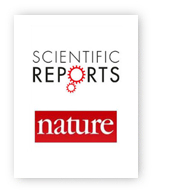Identifcation of serotypes of Mannheimia haemolytica and Pasteurella multocida from pneumonic cases of sheep and goats and their antimicrobial sensitivity profles in Borana and Arsi zones, Ethiopia
Sisay Girma; Latera Getachew; Ayele Beyene; Desiye Tegegne; Takele Tesgera; Motuma Debelo; Jarso Debano; Dereje Teshome; Kebede Abdisa; Abebe Wirtu; Muluken Tekle; Birhanu Abera; Ketema Tafess; Morka Dandecha; Takele Abayneh; Belayneh Getachew; Takele Beyene Tufa; Teshale Sori Tolera
Scientific Reports
Ministerial score = 140.0
Journal Impact Factor (2023) = 4.997 (Q2)
 Respiratory diseases caused by Mannheimia haemolytica (M. haemolytica) and Pasteurella multocida (P. multocida) have been known to result in a considerable loss due to mortality and reduced production. This study aimed at isolation and identification of M. haemolytica and P. multocida associated with pneumonic pasteurellosis in sheep and goats using bacteriological and molecular techniques. Identification of serotypes of M. haemolytica and P. multocida was done using indirect haemagglutination test. The in vitro antimicrobial sensitivity profiles of the M. haemolytica were tested using standard disk diffusion method. A total of 52 and 78 nasal swabs were collected from pneumonic cases for bacterial isolation and identification in Borana and Arsi zone, respectively. Four hundred sera samples were collected for identification of serotypes. The results showed that 17 of 52 (32.69%; 95% CI 20.33, 47.11) nasal swabs collected from pneumonic animals in Borana yielded positive results for Pasteurella/Mannheimia species, 13 (25.00%; 95% CI 14.03, 38.95) of which were M. haemolytica. None of the samples yielded P. multocida. Twenty-three of 78 (29.49%; 95% CI 19.69, 40.89) nasal swabs collected at Arsi from pneumonic animals yielded positive results for M. haemolytica (17) and P. multocida (6). Secondary biochemical characterization revealed that 14 of the 17 isolates conform to M. haemolytica whereas none of the 6 isolates suspected to be P. mutocida were confirmed. Eleven (84.62%) isolates from Borana and 4 (28.57%) from Arsi were confirmed to be M. haemolytica using PCR targeting the Rpt2 genes. Assay for M. haemolytica serotype A1 revealed all belong to A1. None of the isolates with cultural and morphological features of P. multocida gave positive results by molecular assay. Serological assay identified three serotypes of M. haemolytica namely A1, A2 and A7 almost in all of the samples whereas P. multocida serotype A was detected in 78.75% of the samples. The M. haemolytica isolates tested for susceptibility to antibiotics showed resistance against Bacitracin (83.33%) and Penicillin (50.00%) while they were found susceptible to Gentamycin (100%), Chloramphenicol (100%) and Sulfamethoxazole (100%) and Tetracycline (83.33%). In conclusion, the results of the present study revealed the association of M. haemolytica with pneumonic pasteurellosis in sheep and goats and can be of use in vaccine development in Ethiopia. Nevertheless, further investigations and continuous monitoring of antimicrobial resistance and appropriate selection and prudent use of antimicrobials in livestock sector are required.
Respiratory diseases caused by Mannheimia haemolytica (M. haemolytica) and Pasteurella multocida (P. multocida) have been known to result in a considerable loss due to mortality and reduced production. This study aimed at isolation and identification of M. haemolytica and P. multocida associated with pneumonic pasteurellosis in sheep and goats using bacteriological and molecular techniques. Identification of serotypes of M. haemolytica and P. multocida was done using indirect haemagglutination test. The in vitro antimicrobial sensitivity profiles of the M. haemolytica were tested using standard disk diffusion method. A total of 52 and 78 nasal swabs were collected from pneumonic cases for bacterial isolation and identification in Borana and Arsi zone, respectively. Four hundred sera samples were collected for identification of serotypes. The results showed that 17 of 52 (32.69%; 95% CI 20.33, 47.11) nasal swabs collected from pneumonic animals in Borana yielded positive results for Pasteurella/Mannheimia species, 13 (25.00%; 95% CI 14.03, 38.95) of which were M. haemolytica. None of the samples yielded P. multocida. Twenty-three of 78 (29.49%; 95% CI 19.69, 40.89) nasal swabs collected at Arsi from pneumonic animals yielded positive results for M. haemolytica (17) and P. multocida (6). Secondary biochemical characterization revealed that 14 of the 17 isolates conform to M. haemolytica whereas none of the 6 isolates suspected to be P. mutocida were confirmed. Eleven (84.62%) isolates from Borana and 4 (28.57%) from Arsi were confirmed to be M. haemolytica using PCR targeting the Rpt2 genes. Assay for M. haemolytica serotype A1 revealed all belong to A1. None of the isolates with cultural and morphological features of P. multocida gave positive results by molecular assay. Serological assay identified three serotypes of M. haemolytica namely A1, A2 and A7 almost in all of the samples whereas P. multocida serotype A was detected in 78.75% of the samples. The M. haemolytica isolates tested for susceptibility to antibiotics showed resistance against Bacitracin (83.33%) and Penicillin (50.00%) while they were found susceptible to Gentamycin (100%), Chloramphenicol (100%) and Sulfamethoxazole (100%) and Tetracycline (83.33%). In conclusion, the results of the present study revealed the association of M. haemolytica with pneumonic pasteurellosis in sheep and goats and can be of use in vaccine development in Ethiopia. Nevertheless, further investigations and continuous monitoring of antimicrobial resistance and appropriate selection and prudent use of antimicrobials in livestock sector are required.
DOI:10.1038/s41598-023-36026-2









